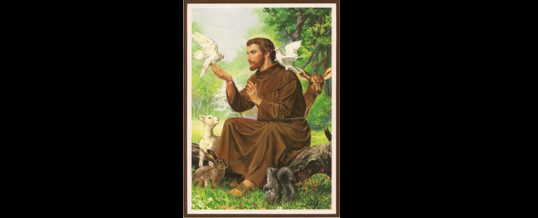
The late Pope Francis, in my mind, will go down in history as one of the greatest popes ever. He was a prophet, no doubt. As with all prophets, Biblical or otherwise, they are only appreciated once they are long dead. While alive they are too disturbing to our comfortable lifestyles and ways of thinking. Prophets never fit into our neatly-constructed boxes, boxes that contain our never-changing set of certitudes and rules, the very things that nobody better call into question. It’s always easier to erect a statue in their honour long after they are dead instead of taking to heart their message while they walked among us.
Ten years ago (2015), Pope Francis gave us the encyclical titles Laudato Si’: On Care for Our Common Home. In it he challenged us to have a serious dialogue about environmental issues and poverty; he viewed them as interconnected challenges. This encyclical was in line with what scientist, environmentalist in particular, have been warning us about for decade. Pope Francis also saw it as a spiritual call to Catholics, Christians, and all peoples of the world. After all, the climate crisis wreaks havoc on land, sea, air, plants—all things we hold in common—and creates climate refugees.
In the same vein as Pope Francis and Laudato Si’, Sister Elizabeth Johnson wrote Come, Have Breakfast: Meditations on God and the Earth in 2023. She too, in my mind, is a prophet of our times. Here’s a quote I gleaned right from the introduction of the book. She’s quoting scientist Stephen Jay Gould who says, “We can- not win this battle to save species and environments without forging an emotional bond between ourselves and nature as well—for we will not fight to save what we do no love.” Isn’t that true on so many level? Maybe that’s the key to salvation itself, that God saves us because God loves us—plain and simple.
Sr. Elizabeth laments the fact that the very opening lines of the Bible, concerning creation, may be partly to blame for the way we have treated (or mis-treated) the created world. In Genesis 1:28, God says to our primordial parents, Adam and Eve, to “be fruitful, multiply, fill the earth and have dominion over it.” Over time, especially in the modern era, the meaning of “dominion” shifter to mean “domination.” The divine commission to take responsible care for the earth got warped into abuse of the earth for profit by the species that thought it was superior.
While the concept of the Kingdom of God is Biblical, Sr. Elizabeth suggests a better world to describe our relationship with the created world is “Kin-dom of God.”
Kingdom smacks of one-way exercise of authority, inherited privilege, colonial oppression, imperial violence, and patriarchal rule (all the things Jesus was against).
Kin-dom stands for a liberating gathering of mutual brothers and sisters in a beloved community working for love and justice.
It makes me think of St. Francis of Assisi and how he found a kinship with all living creatures even to the point of calling the sun “Brother Sun” and the moon “Sister Moon.” Of course, Francis’ family and friends thought he was nuts! He wasn’t. He was a prophet. Francis intuited the interconnectedness of all things that science, 800 years later, is demonstrating to us now as the basis of all reality. St. Francis wasn’t ordained, yet when he gave “homilies” outdoors to the squirrels and birds all of nature leaned in to listen. I do the same thing each weekend with my homilies to the sound of crickets.
Here’s a quote from Come, Have Breakfast to end with. Sr. Elizabeth writes: “There are, of course enormous differences among species. But what the hierarchy of being blocks from view is that first and foremost we are all beloved creatures of God, interrelated in the community of creation, dependent on each other for our very lives. We are all kin in the radiant tapestry of life. And we stand or fall together.”
Listen to nature, your kin. Listen also to the prophets among you. They both speak the same language.
~Fr. Phil
JUN
2025

About the Author: